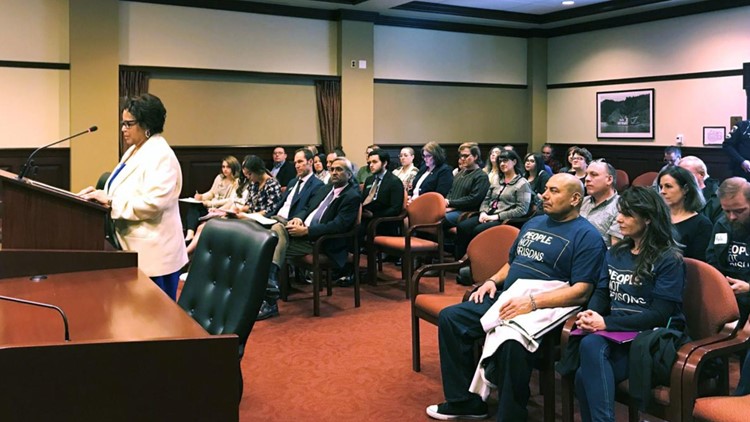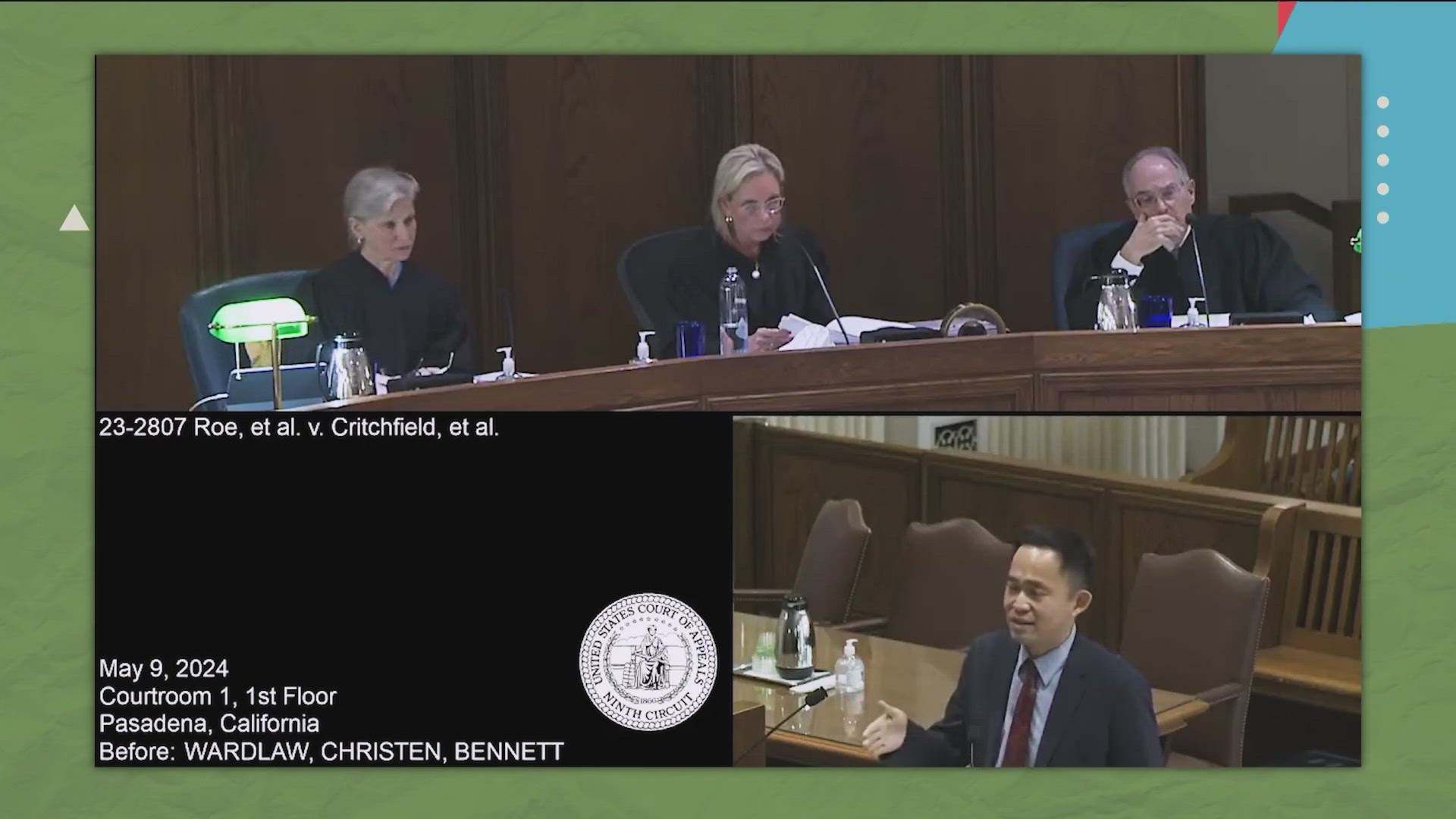BOISE, Idaho — Helen Lusk’s voice broke as she shared her son’s story with a Senate committee on Monday afternoon.
The young man had been released from prison, and she gave him a ride to a job interview at a Simplot Corp. plant in Pocatello.
“He went to apply for one of the most physical jobs you could do at the plant,” Lusk said. Her son was wearing a fresh shirt and tie and “a smile a mile wide.”
“After about 10 minutes, I was surprised to see his number on my phone,” the mom recalled. She picked him up, and “his whole body was slumped. He said, ‘Just take me home.’”
It turned out the official in charge of the roomful of applicants had announced that if anyone there had a felony charge, they should “just leave now because you’re not getting hired.”
“My heart sank,” Lusk recalled. “Within a month he was using again and back in the system. … What if they would have given him a chance? Would he have gone back?”
She was among an array of people speaking in favor Monday of Sen. Cherie Buckner-Webb’s “Fair Chance Employment” bill, which seeks to ensure that job applicants aren’t automatically eliminated — with no consideration of their qualifications — just because they have a criminal record. Former prisoners, business owners, attorneys, advocates, parents and more spoke out for the bill.
And amid much praise for Buckner-Webb, D-Boise, who’s worked on the legislation for the past three years, the Senate Judiciary Committee unanimously endorsed the bill, SB 1318, sending it to the full Senate.
Committee Chairman Todd Lakey, R-Nampa, said Buckner-Webb has been responsive to input from him and others over the past two years, and the bill as she’s crafted it works for people, families and businesses alike.
“It’s straightforward, and it’s easy for people and employers to understand,” Lakey said. “It doesn’t require that employers interview everyone … but it gives them an opportunity.” He added, “At the end of the day … it’s still the employer’s decision on whether that individual is a good fit for them. … I think this is good legislation and I will be supporting it.”
Sen. Abby Lee, R-Fruitland, praised Buckner-Webb’s “incredible work on this issue,” and her “dogged tenacity in bringing this.”
The concept, also known as “ban the box,” would require employers to refrain from excluding job applicants in the job posting and application process solely for having a criminal record.
“Once a conditional offer of employment has been made, it is appropriate for the potential employer to have a conversation about the fullness of the applicant’s background,” Buckner-Webb said.
Twenty-four other states have similar laws, including Utah, Nevada, New Mexico, Oregon and Nevada. And President Trump signed a federal “Fair Chance Act” last December; it requires that federal agencies and contractors subject a prospective employee to a criminal background check only after a conditional job offer is made.
RELATED: New sentencing program will help move people out of crowded Ada County Jail, officials hope
The only person to speak against the bill at Monday’s hearing was Fred Birnbaum, vice president of the Idaho Freedom Foundation, who said when he was a factory manager in Massachusetts, he wouldn't hire any ex-felons for fear they’d steal the razors the factory manufactured.
David Lund told the senators, “I’m a convicted felon. I’m from Coeur d’Alene … but I work in Washington, because Washington has a law like this that protects people like me, gives us a chance.”
“It was very difficult for me to get interviews,” Lund said, “because of the logic that if I stole something ever, that I’m forever tainted — that I would steal your razor blades in a factory.”
Lund said he’s a professional who’s trusted with the keys to the public university building where he works. “Can you imagine if for the rest of my life, because I did something at 19, I’m … tainted forever?” he asked.
Buckner-Webb told the committee, “One out of every five people in Idaho has a former criminal conviction,” adding, “Access to the workplace is key.”
“This is where the fair chance employment legislation comes in,” she said. “It removes the initial barriers that people with criminal convictions often face when trying to get a job: The question, 'Are you a felon?'”
Shelly Nelsen, a human resources management professional and member of both local and national HR management associations, spoke in support of the bill, saying, “I believe it aligns with business and human resources trends and goals across the country.”
“Screening candidates based solely on that one question could also have the effect of preventing what could’ve been a great hire,” Nelsen said.
Dr. Laura Tirrell, a retired family medicine doctor, shared the story of her two nephews, both children of military officers. Both had felony convictions as adults. “They stole cars, they stole property, they injured people,” she said. “Both of them have served over two years in prison.”
“One nephew was able to get a job as a cook. Twenty years later he’s married, he’s a chief chef, he owns a home — in other words, thriving.” The other, she said, struggled and didn’t get a job. After “13 years of cycling through the prison system,” she said, “he’s now dead of an overdose.”
Joe Howell, a former prisoner who’s now a successful business owner who employs other former prisoners, said, “There’s many a skilled worker being passed over because of mistakes they had made and they already had been punished for in our judicial system.”
Lakey noted Idaho’s swelling prison population and high rate of prison returnees who’ve failed probation or parole. “We have the best opportunity to make the most difference in helping people that have gotten out of the system make a positive change and not come back,” he said. “The three key areas that I hear about that help people be successful when they’re out is housing, employment and transportation — and employment really helps with the other two.”
To become law, SB 1318 still would need passage in the full Senate and House and the governor’s signature.
More from our partner Idaho Press: Preservation activists call for demolition ordinance in Boise



